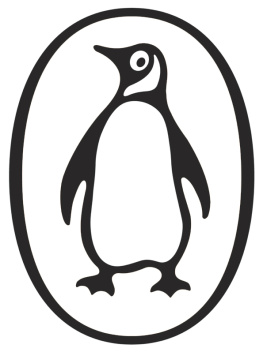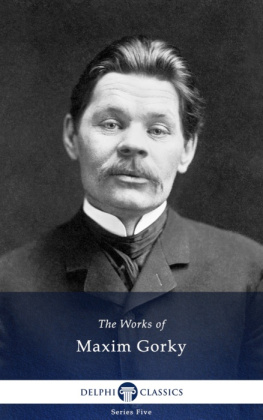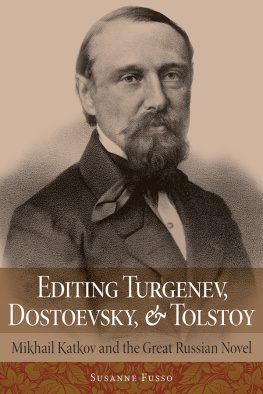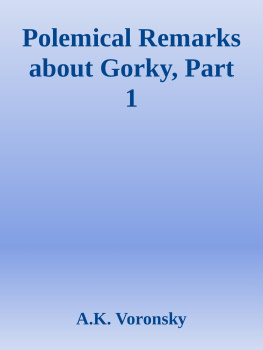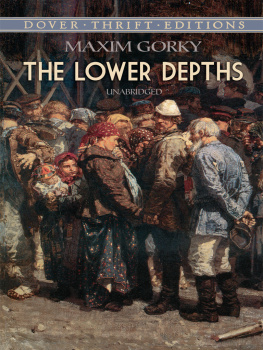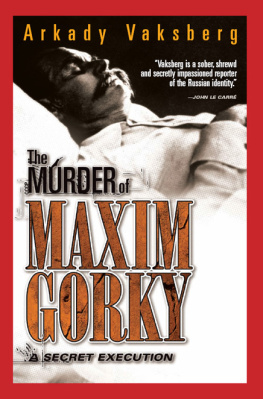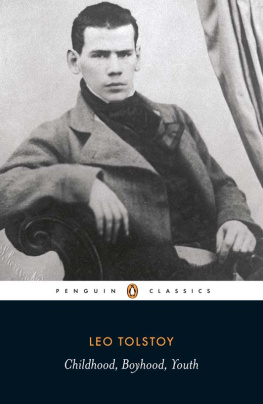PENGUIN TWENTIETH-CENTURY CLASSICS
MY CHILDHOOD
Maxim Gorky is the pen-name of Alexei Maximovich Peshkov, who was born in 1868 in the city of Nizhny Novgorod. After his fathers death he spent his childhood with his mother and grandparents in an atmosphere of hostility. He was turned out of the house when his mother died and left to work in various jobs in a bakery, in an icon-makers shop, on barges until his unsuccessful attempt at suicide. For three years he wandered in the south like a tramp before publishing his first story, Makar Chudra, in a Tiflis newspaper. After his return to Nizhny he worked on another newspaper, in which many of his stories appeared; he quickly achieved fame and soon afterwards his play The Lower Depths was a triumphant success at the Moscow Arts Theatre. By now active in the revolutionary movement, he was arrested in 1905 by the Tsarist government but released following a petition signed by eminent statesmen and writers. While in America in 1906 he savagely attacked American capitalism, and wrote his best-selling novel, Mother. During the First World War he was associated with the Marxist Internationalist Group, and in 1917 he founded New Life, a daily devoted to left-wing socialism but which outspokenly attacked Kerensky and Lenins Communist hysteria. In 1921 he went to Italy, where he wrote My Universities, the third part of his great autobiographical trilogy; the other parts are My Childhood and My Apprenticeship. He returned to Moscow in 1928, and from then on he was a champion of the Soviet cause. In 1936 he died allegedly poisoned by his political enemies and was given a heros funeral in Red Square.
Ronald Wilkes studied Russian and Spanish language and literature at Trinity College, Cambridge, and later Russian literature at London University where he received his Ph.D. in 1972. Among his translations for Penguin are My Childhood, My Apprenticeship and My Universities by Gorky, The Golovlyov Family by Saltykov-Shchedrin, Diary of a Madman by Gogol, How Much Land Does a Man Need? by Tolstoy, four volumes of stories by Chekhov, The Kiss and Other Stories, The Duel and Other Stories, The Party and Other Stories and The Fiance and Other Stories, The Little Demon by Sologub and The Tales of Belkin and Other Prose Writtings by Pushkin.
MAXIM GORKY
MY CHILDHOOD
TRANSLATED
WITH AN INTRODUCTION BY
RONALD WILKS
PENGUIN BOOKS
PENGUIN BOOKS
Published by the Penguin Group
Penguin Books Ltd, 80 Strand, London WC2R 0RL , England
Penguin Group (USA) Inc., 375 Hudson Street, New York, New York 10014, USA
Penguin Group (Canada), 90 Eglinton Avenue East, Suite 700, Toronto, Ontario, Canada M4P 2Y3 (a division of Pearson Penguin Canada Inc.)
Penguin Ireland, 25 St Stephens Green, Dublin 2, Ireland (a division of Penguin Books Ltd)
Penguin Group (Australia), 250 Camberwell Road, Camberwell, Victoria 3124, Australia (a division of Pearson Australia Group Pty Ltd)
Penguin Books India Pvt Ltd, 11 Community Centre, Panchsheel Park, New Delhi 110 017, India
Penguin Group (NZ), 67 Apollo Drive, Rosedale, North Shore 0632, New Zealand (a division of Pearson New Zealand Ltd)
Penguin Books (South Africa) (Pty) Ltd, 24 Sturdee Avenue, Rosebank, Johannesburg 2196, South Africa
Penguin Books Ltd, Registered Offices: 80 Strand, London WC2R 0RL , England
www.penguin.com
First published 1913
This translation first published 1966
Copyright Ronald Wilks, 1966
All rights reserved
Except in the United States of America, this book is sold subject to the condition that it shall not, by way of trade or otherwise, be lent, re-sold, hired out, or otherwise circulated without the publishers prior consent in any form of binding or cover other than that in which it is published and without a similar condition including this condition being imposed on the subsequent purchaser
ISBN: 9781101492567
Introduction
A LEXEI M AXIMOVICH P ESHKOV , better known by his pen-name, Maxim Gorky, was born in 1868 in the City of Nizhny Novgorod, now renamed after him. During his life Gorky significantly meaning bitter acquired a greater reputation than any other Russian writer, and more copies of his works are sold today in Soviet Russia than of even Tolstoys or Dostoyevskys. He is the great, central figure in twentieth-century Russian literature, and has become a Soviet institution, his authority and reputation unassailable. My Childhood is amongst his finest works, and is one of the most moving descriptions of boyhood ever written.
Gorkys early writings were like a fresh current of air in the stuffy literary atmosphere which prevailed at the turn of the century. His first stories, such as Makar Chudra (1892) and Chelkash (1895), are romanticized tales of gipsies, legendary heroes and wandering fishermen. Later he turned to tramps, social outcasts and the men who dwell along the fringe. These stories were rapturously welcomed by a reading public whose appetite was somewhat jaded by the humdrum, pedestrian, naturalistic writings of the Populist School, and which was tiring even of the delicate and subtle nuances of Chekhov. With the rise of industry, writers were now describing town life instead of vegetable existence in the country. Gorky took as his subject downtrodden tramps and factory workers and the terrible squalor in which they lived. With this preoccupation with the common man, the town artisan, it was natural that Gorky should also become the great spokesman for the rising industrial proletariat and, for a major part of his life, a leading figure in the revolutionary movement, championing the cause, and often getting himself into serious trouble when he spoke out strongly against its excesses.
Few writers can have had such a wide experience of life and this was indeed life in the raw. Childhood, which describes the first eight years of the authors life, begins with the funeral of Gorkys father, who had been a paperhanger and upholsterer, and had contracted cholera while working in Astrakhan. He had been unable to bear life with the mercenary, quarrelsome and depraved Kashirins (his wifes family), and had taken his wife and small son Maxim away from their terrible house in Nizhny. After his fathers death Gorky returned with his mother and grandmother to his maternal grandfathers house, for much of the time a veritable living hell, where, in Gorkys words, everyone was choked by a fog of mutual hostility. His grandfather had once been a fairly prosperous barge-hauler and had subsequently set up some dye-works in Nizhny. But he went bankrupt, rashly lending some money which was never returned. The young, impressionable Gorky was initiated into this world of cruelty, greed and bestiality at the tender age of five. He could not understand why people behaved like animals, and he tells us in Childhood that this hard life implanted in him a lasting preoccupation with the sufferings and misfortunes of others.
At the end of Childhood, after his mothers death, he is bluntly told by his grandfather that he must go out into the world, that there is no place for him in the house any more. Left to fend for himself, Gorky worked in barges and ships along the Volga, in a bakery, in an icon-makers shop, enduring misery and poverty, but mixing with people who were trying desperately to eke out a living by doing the most degrading work. In his famous story Twenty-Six Men and a Girl, he describes what it was like working in a bakery for fourteen hours a day. In Among the People, he describes trying to study at night after a day of dreadful drudgery. Driven to despair by the hopelessness of life, he unsuccessfully tried to commit suicide and lay for weeks in hospital with a perforated lung.
Next page
